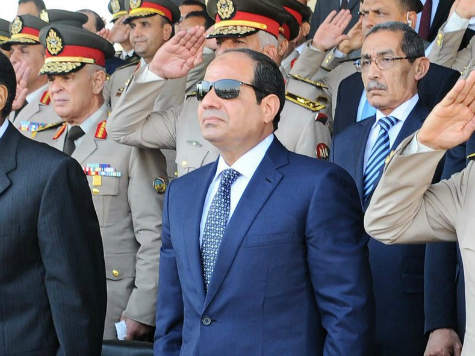Egypt and the United Arab Emirates (UAE) carried out airstrikes in Libya a week ago but did not tell the United States government. New York Times correspondent David Kirkpatrick said it is because the new government does not trust the Obama administration.
“Well, we know they were carried out by the United Arab Emirates from bases in Egypt,” he told NPR radio. “And we know both governments at best tried to keep those strikes secret and behind the scenes. Egypt actually lied about it to the American government.”
“Well, it really is the measure of the deep distrust with the Obama administration here in Cairo and also in the gulf,” he continued. “You’ll remember the Obama administration and the American government recognized the elected president of Egypt even when that president was an Islamist, President Morsi. The new military government that removed President Morsi is not quite ready to forgive that. And the Obama administration has not been fully supportive of the new government either, because it has killed a lot of people as it’s tried to reestablish control.”
From The New York Times:
The United States, the officials said, was caught by surprise: Egypt and the Emirates, both close allies and military partners, acted without informing Washington, leaving the Obama administration on the sidelines. Egyptian officials explicitly denied to American diplomats that their military played any role in the operation, the officials said, in what appeared a new blow to already strained relations between Washington and Cairo.
Kirkpatrick described the fights as a Cold War, which began during the Arab Spring three years ago. Morsi was thrown out of Egypt, and Muammar Qaddafi was ousted in Libya. This left an open hole for leadership.
“You have to look at the whole region in the aftermath of the Arab fights three years ago,” he explained. “There is kind of a Cold War going across the region between the forces of political Islam that have been emboldened and move forward in the wake of that democratic uprising and the forces of stability as they see themselves, or as we would put it, kind of old-style militaristic Arab autocracy.”
The strikes started in June after Islamists lost in parliament elections. The new parliament meets in Tobruk and “branded Islamist militias as terrorists, sacked the country’s chief of staff over his alleged links to Islamists and named a new one who vowed on Monday to wage war against ‘terrorists.'” But the inside war in Libya upset the United States and the United Nations because they want to solve the situation in peace.
“It’s already terrible in Libya,” said Kirkpatrick. “The situation is bad and getting worse without any help from outside countries. You have this patchwork of rival cities and tribes and militias choosing up sides for a kind of national [confrontation] for the first time. That’s already very bad. The capital, the city of Tripoli, is already a warzone, and so is the second city Benghazi. And now when you add to that these foreign powers are not only engaging in kind of a proxy war but are themselves launching airstrikes, this is a serious escalation of the proxy fight.”
Western diplomats said the UAE took a harsh step because the Islamists are a domestic threat. But Qatar, UAE’s neighbor, “welcomed Islamist expatriates to its capital, Doha, and supported their factions around the region, including in Libya.” Officials claim Qatar sent weapons to the Islamists in Libya while forces in Egypt struck an Islamist camp in east Libya. Libya’s foreign minister is in Egypt for advice to stop the violence. Egypt’s foreign minister said Libya’s situation is not good for the entire region.
“The developments in Libya have left an impact we have felt on the security of neighboring countries, with the presence and movement of extremist and terrorist groups whose activists are not only limited to the Libyan territories but also spill over to neighboring countries,” said Sameh Shukri.

COMMENTS
Please let us know if you're having issues with commenting.